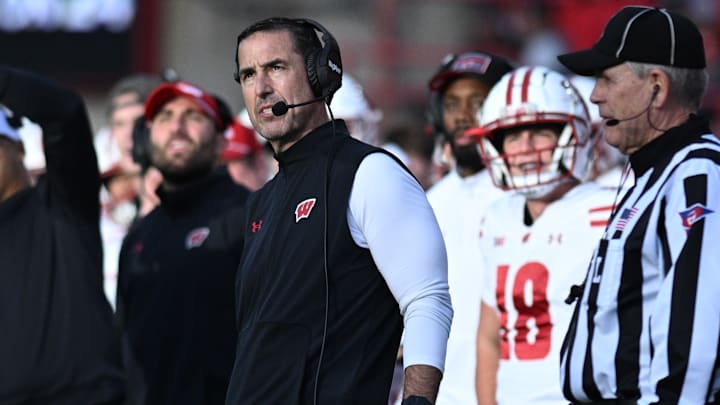The landscape of college football is continuing to shift as old rules are struck down and new regulations are slow to replace them. Especially with the speedy evolution of name, image and likeness (NIL) payments, and eventually revenue sharing in the wake of the House settlement, universities are having a tough time keeping up with what's legal and what's not.
Multiple lawsuits have been settled between players and the NCAA in recent years, but now there will be a case involving two schools opposing one another over the infamous transfer portal.
On Friday, the University of Wisconsin sued the University of Miami for allegedly tampering with a player that decided to leave Madison for Coral Gables this offseason despite having signed an NIL agreement with the Badgers.
The complaint doesn't name the player, but according to ESPN, the details allude to the transfer of freshman defensive back Xavier Lucas. He enrolled at Miami in January after he said Wisconsin refused to enter his name into the transfer portal in December.
Wisconsin sues Miami over unprecedented transfer tampering dispute
The lawsuit is the first of its kind in this new era of college athletics. Never before have two schools gone at it in a courtroom over whether one program tampered with another's players.
Wisconsin alleges a Miami staff member and a well-known alumnus met with Lucas and his family at their home in Florida and offered him money to transfer to the Hurricanes. It also claims that Lucas signed a two-year contract with Wisconsin in December and, therefore, Miami was illegally interfering with a contract agreement.
"While we reluctantly bring this case, we stand by our position that respecting and enforcing contractual obligations is essential to maintaining a level playing field," the school said in a statement to ESPN on Friday.
Miami has not yet commented publicly on the matter, but this will be a watershed moment for NCAA athletics — and not just college football. There is the potential that if Wisconsin wins this case, student-athletes will be viewed as school employees more so than they ever have before.
A ruling in the Badgers' favor would essentially mean that any athletes with contractual agreements tied to financial compensation in exchange for their athletic abilities in a certain school's uniform are bound to those agreements unless formally terminated.
This could be the first of many genies let out of the bottle, but it may also serve as a significant guardrail that may benefit students and schools in the long run.
